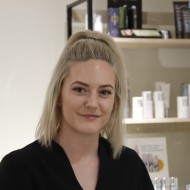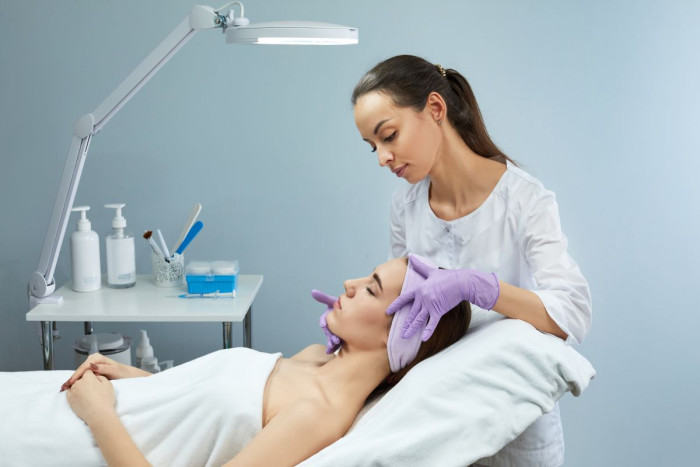Beauty Therapist
Kaihaumanu Kanohi
Alternative titles for this job
Beauty therapists provide treatments such as facials, massage, laser hair removal, waxing and pedicures.
Pay
Beauty therapists usually earn
$50K-$70K per year
Source: Seek and Indeed, 2023
Job opportunities
Pay
Pay for beauty therapists varies depending on the type of work they do and their hours.
- New beauty therapists usually start on the minimum wage.
- Beauty therapists with more than two years' experience usually earn between $50,000 and $70,000 a year.
- Beauty therapists who specialise as cosmetic injectors, and managers, can earn more.
Those running their own business may earn more than this, but their income depends on the success of the business.
Beauty therapists may receive product discounts, bonuses, commissions and incentives.
Sources: Seek, 2023 and Indeed, 2023.
- PAYE.net.nz website – use this calculator to convert pay and salary information
- Employment New Zealand website - information about minimum wage rates
(This information is a guide only. Find out more about the sources of our pay information)
What you will do
Beauty therapists may do some or all of the following:
- analyse and treat clients' skin, hair and nails
- advise on face and body care
- apply and sell makeup and skincare products.
Beauty therapists may specialise in:
- face and body treatments such as facials, scrubs, peels and massages
- removing unwanted hair by waxing, electrolysis, and laser treatment
- applying artificial tan
- shaping, tinting and applying eyebrows and eyelashes
- manicures and pedicures (treating and decorating fingernails or toenails)
- massage and reflexology
- cosmetic injections such as Botox.
Skills and knowledge
Beauty therapists need to have:
- knowledge of the human body, and conditions that can affect skin, nails and hair
- understanding of how beauty therapies and nutrition can affect the body
- knowledge of cosmetic ingredients and beauty treatment methods
- an understanding of hygiene, and health and safety regulations
- sales skills.
They also need skills and knowledge in the areas they specialise in such as facials, makeup or nail care and decoration.
Beauty therapists who are self-employed also need marketing and business skills.
Working conditions
Beauty therapists:
- usually work long hours including evenings and weekends, and may work shifts
- usually work in beauty salons and stores, or in spas, fitness centres, cruise ships, hospitals, and private homes
- may work with hazardous items such as lasers, liquid nitrogen, hot wax, needles and chemicals
- may travel to training seminars and competitions.
What's the job really like?

Paige Judd
Beauty Therapist
What type of clients do you like working with most?
“People who have extra hair growth – I enjoy working with them more, because their condition and the stereotyping is unfair on them. Making them feel ‘normal’ makes them feel really good."
Is there anything you didn’t expect in your role?
"I had to get over the sales. It’s a huge part of the job – 50 percent. It’s a hurdle I thought I’d never get over, recommending things."
What’s it really like giving waxes or laser treatment?
“It's very intense. You are working in close proximity to people and bodily fluids – for instance with waxing even if it’s done right there can be a small amount of blood. And with IPL [laser hair removal] my client and I have to wear goggles, and I have to cover the mirrors because of the bright lights.
“I try to make it as normal as possible, soft and jokey. And I always keep their modesty with a towel over the area I’m not working on.”
What do you enjoy most about the job?
“I love to talk and be with people! There are so many beauty treatments you can do. People arrive feeling gross and hairy, and leave feeling relaxed and really happy.”
Entry requirements
There are no specific requirements to become a beauty therapist. However, a certificate or diploma in beauty therapy is recommended.
You can attend a course or complete an apprenticeship and gain a New Zealand Certificate in Beauty Therapy (Level 4). The New Zealand Hair and Beauty Industry Training Organisation (HITO) oversees beauty therapy apprenticeships.
- New Zealand Association of Registered Beauty Therapists website - beauty course providers
- New Zealand Hair and Beauty Industry Training Organisation (HITO) website - beauty therapy apprenticeships
- More information about apprenticeships
Secondary education
NCEA Level 2 is required to enter tertiary training. Useful subjects include health education, biology and maths.
For Year 11 to 13 learners, trades academies and the STAR and Gateway programmes are good ways to gain relevant experience and skills.
These programmes may help you gain an apprenticeship, but do not reduce the amount of time it takes to complete it.
Additional requirements for specialist roles:
Clinical aesthetician or aesthetician / clinical injector
To be a clinical aesthetician, or clinical injector, who administers injections, such as botox, you need to be a registered nurse.
To be an aesthetician, who supports those nurses, you need to:
- hold qualifications in beauty therapy, laser treatments, acid treatments and electrolysis
- have at least two years' industry experience and knowledge of cosmetic injections.
Personal requirements
Beauty therapists need to be:
- friendly, tactful and patient
- creative and artistic
- organised, and able to work well under pressure
- good at managing their time
- confident about recommending and selling products
- able to work well in a team.
Selling is a huge part of the job. You need to believe in the products so you can recommend them. You have to do things like calling people, following up, re-booking, even handing out flyers – all to help grow your business.

Paige Judd
Beauty Therapist
Useful experience
Useful experience for beauty therapists includes:
- modelling
- customer service or retail work
- volunteer or paid work in a beauty or hair salon, fashion or cosmetics store.
Physical requirements
Beauty therapists need to be:
- neat and tidy, with a high standard of cleanliness
- well co-ordinated with good eyesight (with or without corrective lenses) for detailed work
- reasonably strong, to carry out massages and body wraps, and carry massage tables.
Beauty therapists should not be allergic to makeup or beauty products.
Registration
Beauty therapists can apply for membership of the New Zealand Association of Registered Beauty Professionals.
Find out more about training
- New Zealand Association of Registered Beauty Professionals
- www.beautynz.org.nz
- New Zealand Hair and Beauty Industry Training Organisation (HITO)
- info@hito.org.nz - (04) 499 1180 - www.hito.org.nz
What are the chances of getting a job?
Qualified and experienced beauty therapists in demand
Demand for qualified and experienced beauty therapists is good because growing numbers of people use beauty therapy services.
The New Zealand Association of Registered Beauty Therapists has 680 registered members, and there are also unregistered therapists.
According to the Census, 5,274 beauty therapists worked in New Zealand in 2018.
Experience and direct approach increase chances of beauty therapist apprenticeships
Few beauty therapist apprenticeships are advertised, and there is high competition for roles.
Employers prefer apprentices who have a realistic understanding of the job. To gain experience and understanding, you can:
- complete the Gateway programme for hair and beauty
- study at a beauty school
- get work experience at beauty salons and other customer service roles (paid or voluntary).
When you've got some experience, you can approach salons directly to ask about an apprenticeship.
Types of employers varied
Beauty therapists may work for:
- beauty salons and clinics
- large department stores
- luxury hotels and cruise ships
- spas and health clubs
- specialised nail bars.
Some beauty therapists are self-employed.
Sources
- CB Insights, '13 Trends Shaping the Face of Beauty in 2018', accessed October 2018, (cbinsights.com).
- Mason, L, executive director, Vivo Hair & Beauty, careers.govt.nz interview, October 2018.
- Meier, C, 'From Home-made Products to Injectables - 50 years of Beauty in NZ', 18 July 2018, (stuff.co.nz).
- Ministry of Business, Innovation and Employment, 'Annual Percentage Change in Advertised Job Vacancies, August 2017 to August 2018 Quarters', September 2018, (mbie.govt.nz).
- New Zealand Association of Registered Beauty Therapists website, accessed October 2018, (beautynz.org.nz).
- New Zealand Hair and Beauty Industry Training Organisation (HITO) website, accessed October 2018, (hito.org.nz).
- Stats NZ, '2018 Census Data', 2019.
- Viva, 'Personal Grooming Survey Reveals New Zealander's Hairy Habits', 26 September, 2018, (viva.co.nz).
(This information is a guide only. Find out more about the sources of our job opportunities information)
Progression and specialisations
Beauty therapists may progress to set up their own beauty salons, or move into management roles.
Beauty therapists may become sales representatives or permanent make-up artists (who tattoo hair and facial features).
Beauty therapists can specialise in the following roles:
- Clinical Aesthetician/ Cosmetic injector
- Clinical aestheticians administer cosmetic injections and peels.
- Nail Technician
- Nail technicians treat and decorate clients' nails.
- Tanning Technician
- Tanning technicians offer spray tan services.
Last updated 11 December 2024


